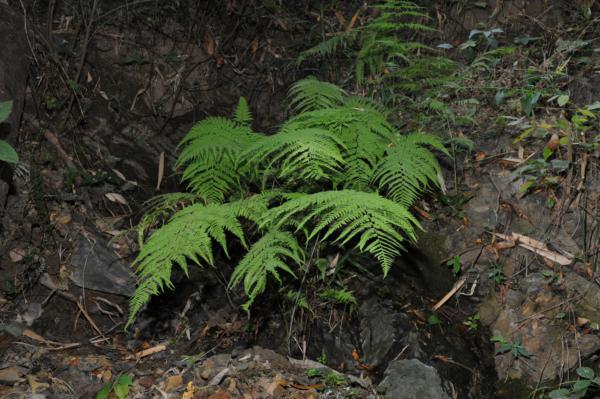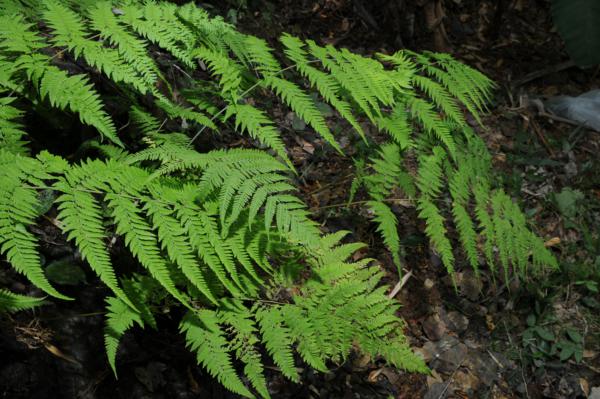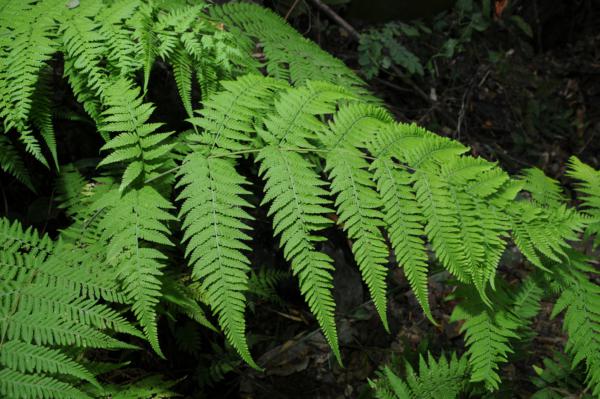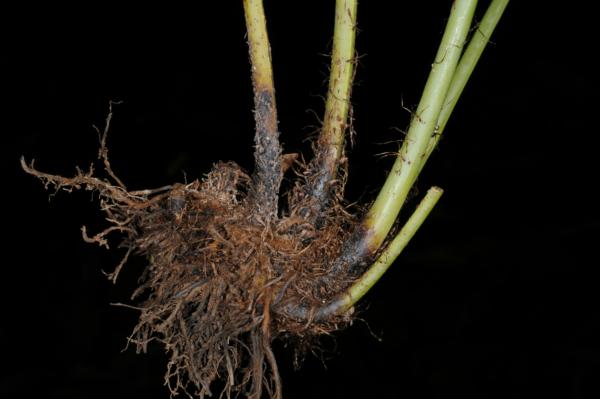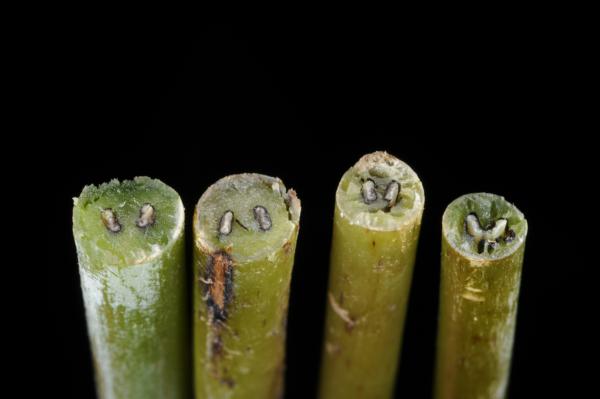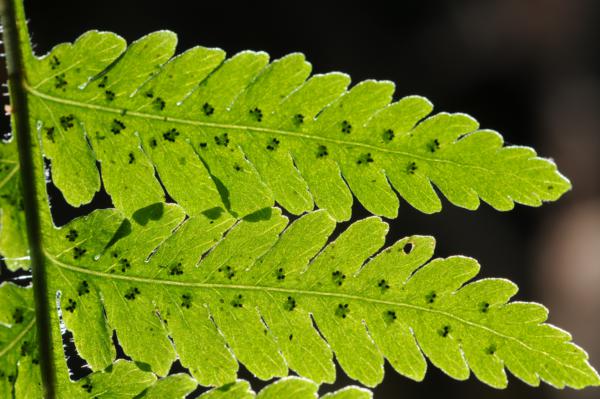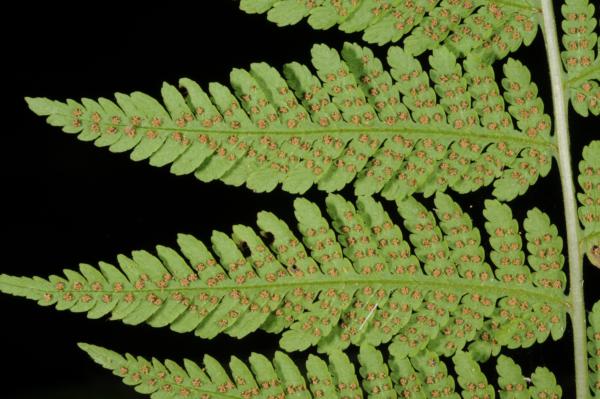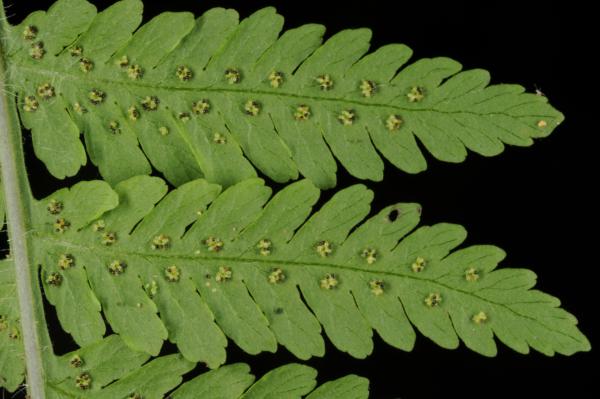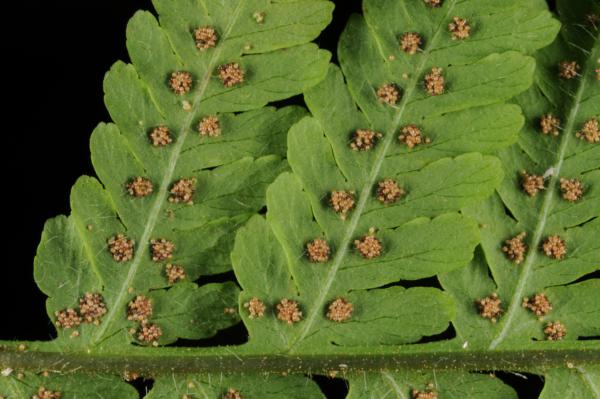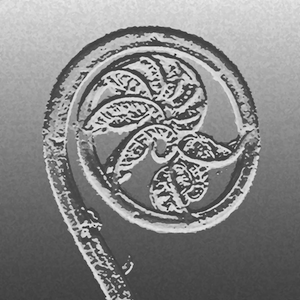
Macrothelypteris torresiana (Gaudich.) Ching
Family
Thelypteridaceae
Nomenclature
Macrothelypteris torresiana (Gaudich.) Ching, Acta Phytotax. Sin. 8: 310. 1963; Holttum, Blumea 17: 27. 1969; Holttum, Fl. Males., Ser. II, Pterid. 1: 348, f. 2h–j. 1982 [‘1981’]; Boonkerd & Pollawatn, Pterid. Thailand: 224. 2000. – Polystichum torresianum Gaudich. in Freyc., Voy. Bot.: 333. 1817. – Thelypteris torresiana (Gaudich.) Alston, Lilloa 30: 111. 1960; K.Iwats., J. Jap. Bot. 38: 314. 1963; Tagawa & K.Iwats., SouthE. Asian Stud. 3(3): 78. 1965; Tagawa & K.Iwats., SouthE. Asian Stud. 5: 64. 1967; Tagawa & K.Iwats., Fl. Thailand 3: 398. 1988. – Type: Gaudichaud, Mariana Islands (P, G).
Aspidium uliginosum Kunze, Linnaea 20: 6. 1847. – Dryopteris uliginosa (Kunze) C.Chr., Index Filic., Suppl. III: 100. 1934. – Thelypteris uliginosa (Kunze) Ching, Bull. Fan Mem. Inst. Biol. 6: 342. 1936; Tardieu & C.Chr., Fl. Indo-Chine 7(2): 371. 1941; Holttum, Rev. Fl. Malaya ed. 1, 2: 241. 1955 [‘1954’]; Holttum, Dansk Bot. Ark. 23: 232. 1965. – Type: Cult. Hort. Bot. Leipzig, orgin Java (BR).
Polypodium tenericaule Hook., Hooker's J. Bot. Kew Gard. Misc. 9: 353. 1857. – Nephrodium tenericaule (Hook.) Hook., Sp. Fil. 4: 142. 1862. – Lastrea tenericaulis (Hook.) T.Moore, Index Filic.; 99. 1858; Bedd., Handb. Ferns Brit. India: 266. 1883. – Type: Alexander s.n., China (K).
Aspidium setigerum auct. non (Blume) Kuhn: Christ, Bot. Tidsskr. 24: 108. 1901; C.Chr., Bot. Tidsskr. 32: 342. 1916.
Description
Rhizome short creeping to suberect; scales narrow, brown, up to 20 by 1.5 mm, hairy on dorsal surface as well as margin, the base often a few cells thick. Stipes 35–100 cm long, about 1 cm diam. near base, terete when fresh but grooved when dry, sometimes spiny in lower part. Laminae oblong to oblong-ovate, deeply tripinnatifid, 32–90 by 15–75 cm; pinnae 12–15 pairs, oblong, acuminate at apex, 9–40 by 5–20 cm; larger pinnules sessile, oblong-subdeltoid, acuminate at apex, up to 10 by 4 cm; ultimate segments oblong, oblique, rounded to moderately acute at apex, lobed to 3/4 way towards midrib; lobes oblong to subdeltoid, entire, sometimes involute; rachis terete, glabrous; pinna-rachis hairy on upper surface, costules winged throughout, hairy; veins and surfaces hairy with unicellular or multicellular hairs; texture herbaceous to softly papyraceous, green but often brownish when dried. Sori round, usually close to midrib of ultimate segments; indusia small, often covered by mature sporangia, round-reniform , with long hairs.
Distribution in Thailand
NORTHERN: Chiang Mai, Chiang Rai, Lamphun, Lampang, Tak; SOUTH-WESTERN: Kanchanaburi; CENTRAL: Nakhon Nayok; SOUTH-EASTERN: Trat; PENINSULAR: Chumphon, Surat Thani, Nakhon Si Thammarat, Satun, Yala.
Distribution in Laos
Vientiane.
Wider Distribution
Mascarene Islands, throughout tropical Asia, Polynesia, Hawaii, north to Japan and south to Australia; also naturalized in the New World.
Ecology
On sunny slopes along roads at edge of forests at low to medium altitudes.
Similar species
Macrothelypteris ornata (Wall. ex Bedd.) Ching
Proposed IUCN Conservation Assessment
Least Concern (LC). This species is widespread and not under any known threat.
Voucher specimens - Thailand
Middleton et al. 4778, Kanchanaburi, Thong Pha Phum National Park (E).
Voucher specimens - Laos
Maxwell 99-140, Vientiane (CMU); Maxwell 99-204, Vientiane (CMU)
Habit
Habit
Habit
Rhizome
Progressive cross sections through stipe (left to right is from base to apex)
Venation
Lower surface of lamina with sori
Pinnules with young sori
Pinnules with mature sori
Site hosted by the Royal Botanic Garden Edinburgh. Content managed by Stuart Lindsay, Gardens by the Bay, Singapore and David Middleton, Singapore Botanic Gardens. Last updated 24 January 2012
